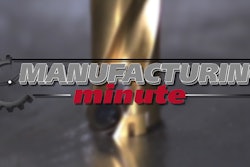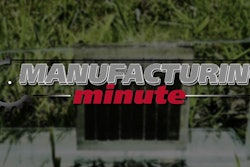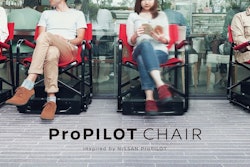Giving The Boot, The Boot
Chances are, if you live in a city, you’ve probably seen an illegally parked car, or been the recipient yourself of a wheel clamped with a wheel boot until a fine is paid. Those boots can be heavy and cumbersome and require the person putting them on a vehicle to kneel down dangerously close to passing traffic. Now, New York-based Ideas That Stick has developed an alternative to the boot—the windshield-blocking Barnacle.
Parking officials need only lean across offending cars from the curb in order to install the Barnacle, which suctions itself to the windshield using two pump-activated commercial grade suction cups that can withstand hundreds of pounds of pulling force. When not being used, the Barnacle folds in half so officers can carry several of the devices in the back of their vehicle.
After paying their fine, drivers are given a numerical release code. Should drivers try to remove or drive away with a Barnacle still attached, a built-in alarm will sound. Once removed, drivers have 24 hours to return the Barnacle to a drop-off location or presumably be fined once again.
SO, WHAT DO YOU THINK?
Is this a better, safer solution to the auto boot? Tell us what you think by leaving your comments below.
A Water Power-Fueled Satellite to the Moon
A group of students from Cornell University are working to develop a tiny satellite designed to orbit the moon. And while this doesn’t particularly sound impressive as a stand-alone idea, it’s the how they’re planning to do this that’s so fascinating.
Their goal is demonstrate that you can use water as a propellant. Yeah, you heard me. Water-powered technology is attempting to be used to navigate a shoe-boxed sized satellite into orbit around the moon. But the upside of a spacecraft powered by water is that it wouldn’t rely on Earth’s resources to function. Ideally, the spacecraft could even refuel at a space-bound water source (like an asteroid), meaning it would save astronauts the trouble of hauling fuel all the way from Earth. Not to mention, of course, the added benefit that water is a safe and stable fuel substance.
Now, this is all part of a competition that NASA is hosting called the Cube Quest Challenge. So, we won’t know if the Cornell team will be able to meet their goal until as late as 2018. But, if they are successful, then it could open more doors to push spacecraft deeper into the universe.
SO, WHAT DO YOU THINK?
Do you think this water-powered technology could be a viable alternative to fueling the spacecraft of the future? Leave a comment in the section below.






















